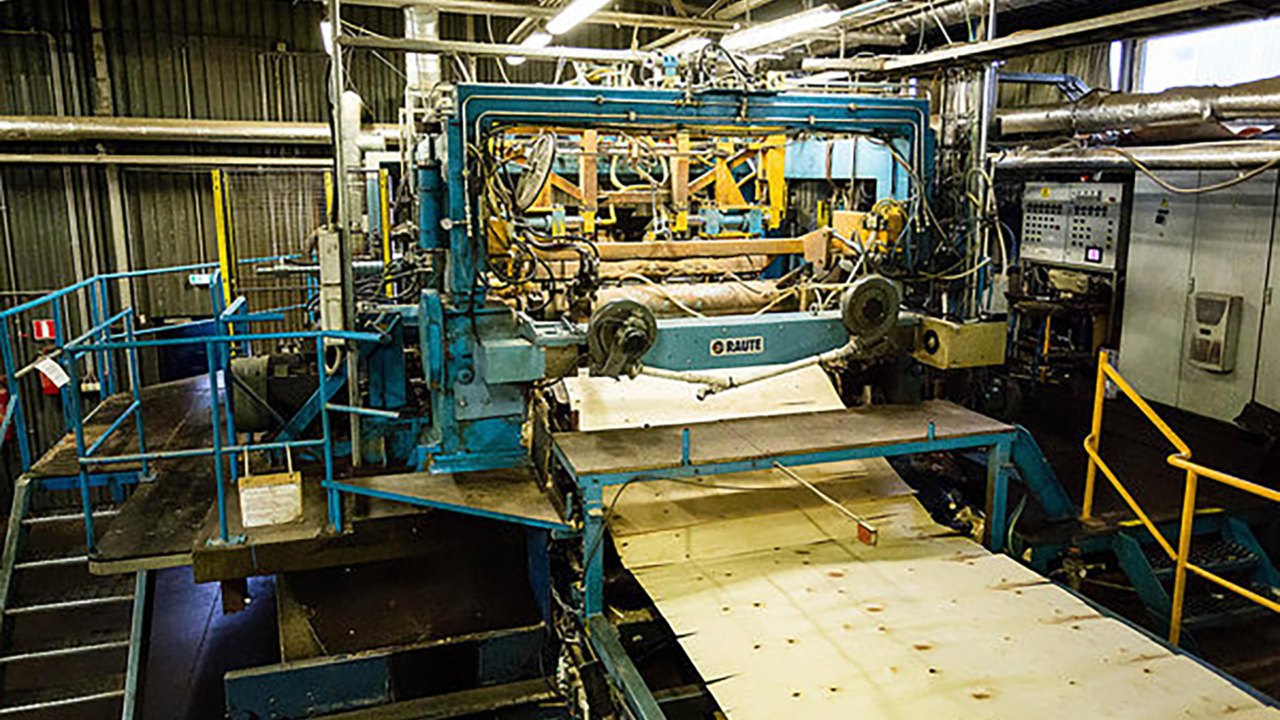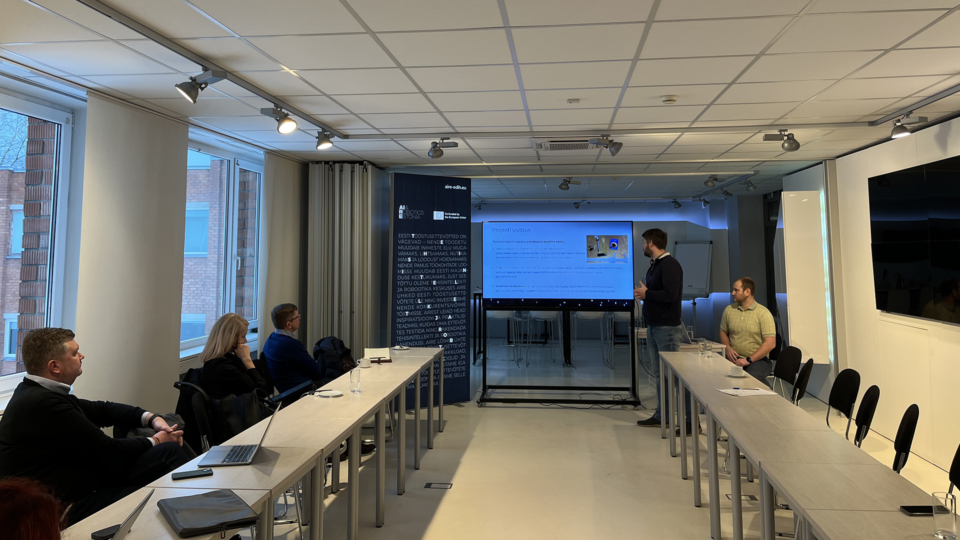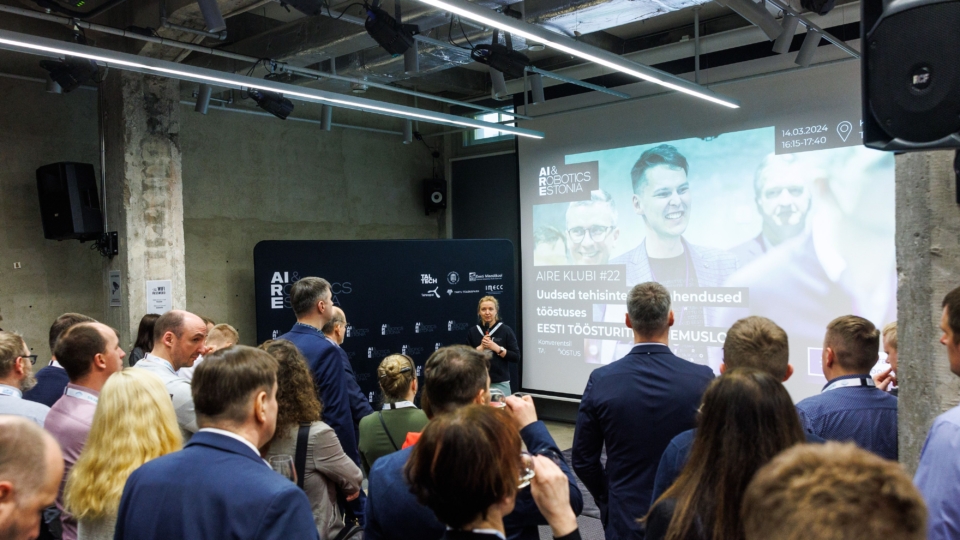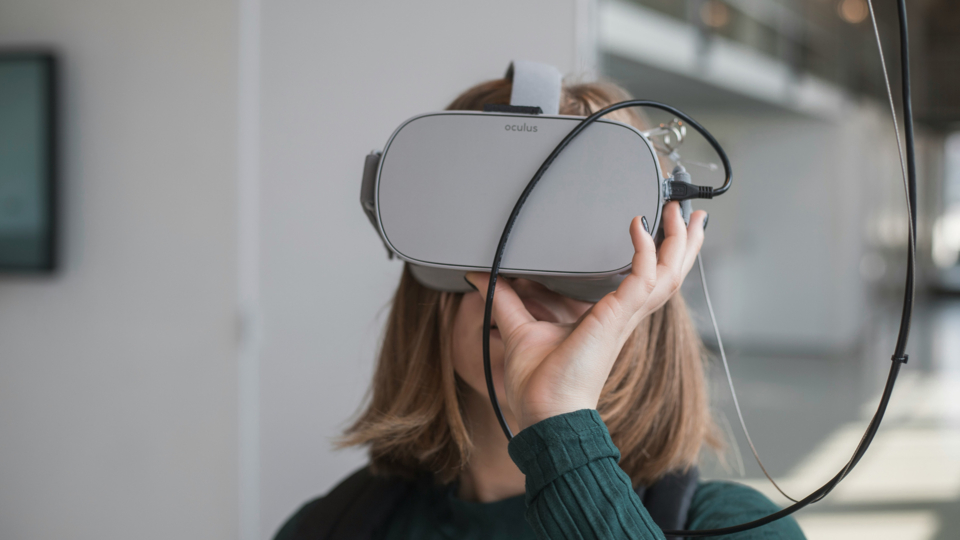Tarmeko Spoon production manager Jaan Kraav: “Investing in artificial intelligence was the right decision!”
“Compared to human work, artificial intelligence (AI) ensures more consistent quality. Robots are good especially in work sections, where it is a matter of routine work,” explains Jaan Kraav, AS Tarmeko Spoon production manager. The positive impact of AI can be seen both visually and in numbers.
Although Tarmeko Spoon had been looking for a way to increase production efficiency and eliminate some “bottlenecks” for some time, the decision to participate in the AI development marathon organized by Tehnopoli in February brought them a winning cash injection and an investment that changed the company’s life. From more than twenty applicants, the jury initially selected fourteen artificial intelligence projects intended for manufacturing companies, of which the four best received a total of 190,000 euros for investment and the fulfillment of their goals. Among the winners was the joint project of Tarmeko Spoon, which produces veneer and plywood, with Leanest, with whom we had previously cooperated.
Visible rise
A cash injection of 65,000 euros helped the company introduce a camera based on AI technology, which detects defects in the veneer already on the veneer drawing line, explains the quality of the material, and finally, based on this information, makes a decision on where the material needs to be cut. The human eye is far inferior to the AI eye. The final results of the project should be seen within a year or two. With the help of AI, it is possible to increase the speed of the veneer turning line by up to 30 percent and, compared to the system in use today, to increase the quality of the veneer to be dried by three percent. Thanks to this, one work shift could be cancelled. It would also not be a problem for the company if demand were to increase.
In the future, the plan is to start sorting finished products with the help of AI. There are currently a total of six people working in three shifts who will be doing other work. However, the use of AI and the increase in efficiency do not mean a decrease in the number of employees, but an adjustment and change of work tasks and processes. According to Kraavi, it cannot be done without a person. AI quickly does routine work or work that requires extreme precision, which the human eye cannot do in such a time, but the whole process is still managed and understood by a person. The company currently has three robots in operation, but the plan is to get more of them. It is important to note that the corona crisis and the war in Ukraine have not affected Tarmeko Spoon’s work volume so far, rather the work is always increasing.
If the entire AI project starts, with which Tarmeko Spoon together with Leanest won the artificial intelligence or AI development marathon organized by the research and business campus Tehnopol and received a financial injection for its implementation, we can expect a turnover increase of as much as 15 percent and a decrease in the cost price of the product due to savings in log and energy costs. There are more advantages brought by the introduction of AI, but according to Jaan Kraavi, it is not wise to talk about everything before the right time.
How does a manufacturing company get to AI?
With this in mind, some manufacturing companies may be wondering how to decide whether an AI investment makes sense or how to get there. What are the risks? “Tarmeko Spoon was actually looking for solutions to various problems for some time, but could not and did not find the right one,” reveals Kraav. “Our good cooperation partner Leanest OÜ already offered a solution, but since it was more expensive and the time to solve the problem would have been very long, this plan was broken.” Finally, Leanest came up with the idea of how to implement AI and also make this solution more affordable for Tarmeko Spoon and at the same time make it profitable.
“The first project we put into operation was a log sorting line. The AI-based camera evaluates the quality and quickly finds all scrap logs. “The operator may not be able to see all the defects around the log 360 degrees, but the AI camera can.” The original plan of the project defended at the AI Marathon was to increase the efficiency and productivity of another line. “We thought we would install a camera there that would give the line information on where to make the right cuts, but it turned out that the price would be very high. We thought then, how could it be otherwise. And the result was what we participated in the AI marathon with Leanest – so that we don’t needlessly dry the veneer, which will be scrapped anyway in post-processing, because it is a significant expenditure of time and resources. As you can see, we started solving the bottleneck from a different place. And it was the right decision! Now we can find out the quality of the veneer right from the start, and it won’t become clear until the next stages of work, when we have already made unnecessary expenses.”
Meeting with AIRE
At the AI marathon that took place in the winter, Tarmeko Spoon also met with AIRE, i.e. representatives of the artificial intelligence and robotics center. AIRE is Estonia’s candidate for the European network of digital innovation centers, which will finance 2022-2025 centers across Europe. AIRE can be considered the digital innovation center of Estonia, from which every Estonian company that is interested in AI or newer technologies will definitely get help. However, cooperation with researchers from Tallinn University of Technology and University of Tartu adds the necessary credibility.
It was from AIRE that Tarmeko Spoon was recommended a mentor to help implement AI, who would share useful advice and good recommendations during the project. AI is one thing in theory, quite another in real production, where there are many other factors to consider. Tähve Lõpp turned out to be this supporter, who comes into contact with various AI solutions on a daily basis – a man who has been active in the IT field for 22 years and participated in all kinds of software solutions
For the past three years, he has worked in Ericsson Estonia as the head of the Smart Manufacturing unit, where several exciting innovations are underway, but according to him, it is too early to talk about them. A lot of this has to do with AI, of course. “I can hint as much that one day Ericsson’s Tallinn factory could have a digital twin… Of course, it will take time, but one day it will come.”
AI will not help if production processes are not in order
Tähve Lõpp emphasizes that while he created various software solutions both in Estonia and abroad in the private and public sector for ten years, his heart now belongs to industry. This is one reason why he wants to contribute to Tarmeko Spoon’s AI implementation. “I confess that I have always been drawn to the manufacturing sector, probably because something concrete is prepared there for all of us, which we need in our everyday life. For example, at Ericsson, we produce mobile communication devices so that people can communicate with each other.”
At the same time, it’s no secret that the production sector in Estonia lags behind many other sectors in its development in digitization (who knows, maybe even ten years), but AI is getting there too. “Not yet today, but that time will come and quite soon.” In any case, according to Tähve, companies that want to be on the market for another 10 or 15 years should definitely think about AI, because otherwise any current advantage will melt like spring snow. The future belongs to AI.
“The main thing is that the production processes must be in order, there must be no logging anywhere. AI will not fix the wrong process. When looking for innovative solutions, it should be explained in advance how useful it will be in the end.” According to the expert, a rule could apply to AI technology – if it brings the necessary change in a year, then make an investment immediately, if in two years, then you should think again. But if it takes three years, scrap the plan. “There are many ways of automation, but it is important to clarify where efficiency is most needed and what makes the most sense – that is, where the greatest savings in costs or time can be achieved. Ericsson’s example can be used to highlight the machine learning-based analysis of huge volumes of test data,” emphasizes Tähve Lõpp. If the company itself is in trouble when deciding on the introduction of AI, then in Estonia you can certainly get help from AIRE, but there are also many other good experts and consulting companies in the IT field. “Find them, you don’t need to make any investments to ask for advice,” advises Tähve Lõpp.



